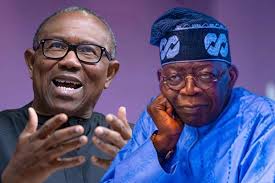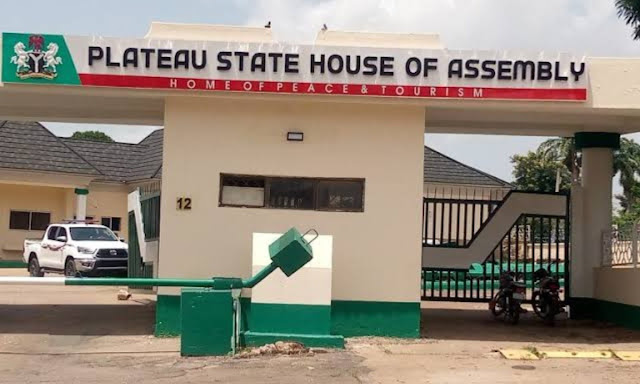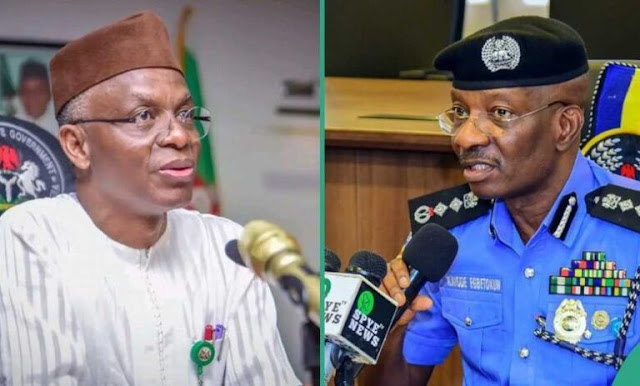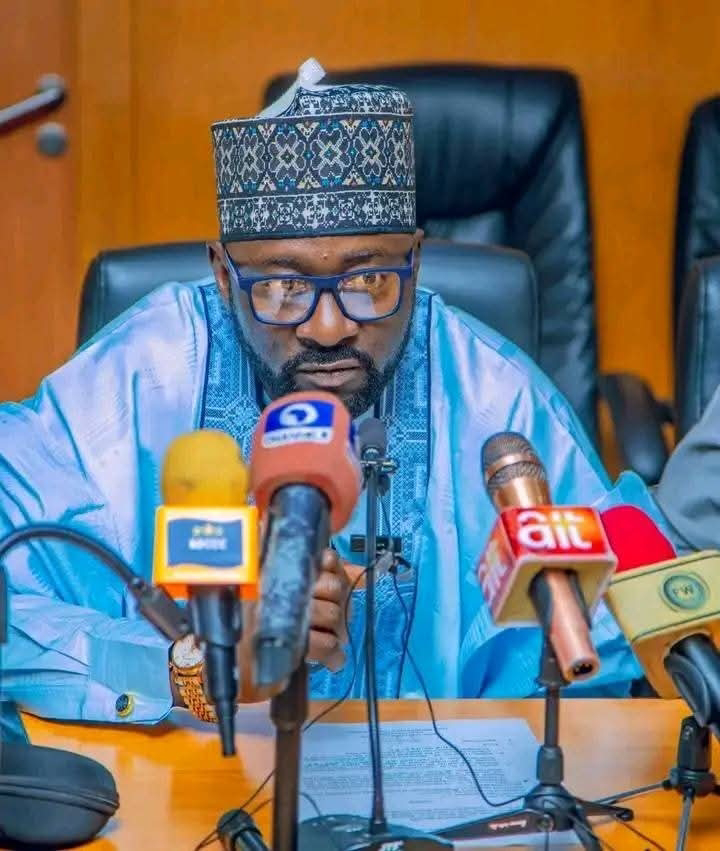In a provocative statement that has sparked widespread debate, Peter Obi, the Labour Party’s presidential candidate in the 2023 general elections, has suggested that President Bola Ahmed Tinubu’s frequent international travels indicate that he may not find Nigeria “conducive for a long stay.” Speaking at an event in Abuja on September 4, 2025, Obi criticized the president’s absence from the country during a period marked by economic hardship, insecurity, and public discontent. His remarks have reignited discussions about leadership accountability, governance priorities, and the role of Nigeria’s president in addressing the nation’s pressing challenges.
The Context of Obi’s Statement
Peter Obi’s comments were made during a public lecture organized by a civil society group in Abuja, where he was invited to speak on the theme of leadership and national development. Known for his outspoken critiques of government policies, Obi used the platform to highlight what he perceives as a disconnect between President Tinubu’s actions and the urgent needs of Nigerians. According to Obi, the president’s frequent foreign trips—reportedly over 15 in his first two years in office—suggest a lack of commitment to tackling Nigeria’s domestic crises, including rising inflation, unemployment, and insecurity.
“From all indications, our president is not finding his home in Nigeria conducive for a long stay,” Obi stated. “At a time when Nigerians are grappling with hunger, insecurity, and economic collapse, the president’s absence raises serious questions about his priorities. Leadership requires presence, empathy, and action, not endless travels abroad.” Obi’s remarks were met with applause from the audience, reflecting growing public frustration with the state of governance in Nigeria.
The statement comes at a time when Nigeria is facing multifaceted challenges. The removal of fuel subsidies in May 2023, one of Tinubu’s first major policy decisions, led to a sharp increase in fuel prices, triggering inflation and exacerbating the cost-of-living crisis. The naira’s devaluation, coupled with rising food prices, has pushed millions of Nigerians into poverty, with the National Bureau of Statistics reporting that inflation reached 33.4% in July 2025. Simultaneously, insecurity remains a critical issue, with ongoing insurgencies in the northeast, banditry in the northwest, and separatist agitations in the southeast. Against this backdrop, Obi’s critique taps into widespread sentiment that the government is not doing enough to address these crises.
President Tinubu’s Foreign Engagements: Necessity or Extravagance?
President Tinubu’s frequent international travels have been a subject of contention since he assumed office on May 29, 2023. According to reports, Tinubu has visited countries across Europe, Asia, and Africa, attending summits, bilateral meetings, and investor forums. His administration defends these trips as essential for attracting foreign investment, strengthening diplomatic ties, and positioning Nigeria as a key player in global affairs. For instance, Tinubu’s participation in the G20 Summit in India, the UN General Assembly in New York, and the African Union Summit in Ethiopia were described by the presidency as opportunities to secure partnerships for Nigeria’s economic growth.
In a statement issued by the State House in August 2025, Special Adviser on Media and Publicity, Ajuri Ngelale, emphasized that the president’s travels were “strategic and result-oriented.” He cited agreements signed with countries like France, Germany, and Saudi Arabia for investments in agriculture, infrastructure, and renewable energy as evidence of their value. Ngelale also argued that Tinubu’s global engagements were critical to addressing Nigeria’s economic challenges, particularly in the context of the post-subsidy era, which required robust foreign direct investment to stabilize the economy.
However, critics, including Obi, argue that the frequency and cost of these trips are unjustifiable given Nigeria’s domestic challenges. The presidency has faced accusations of lavish spending on foreign delegations, with reports suggesting that some trips involve large entourages and high logistical costs. In a country where millions struggle to afford basic necessities, such expenditures have fueled perceptions of insensitivity. Obi’s statement amplifies these concerns, framing Tinubu’s travels as a sign of detachment from the realities faced by ordinary Nigerians.
Peter Obi’s Political Trajectory and Public Appeal
Peter Obi, a former governor of Anambra State (2006–2014), has emerged as a formidable voice in Nigerian politics. His 2023 presidential campaign under the Labour Party galvanized a broad coalition of young voters, professionals, and disenfranchised citizens, earning him the nickname “Obidient” among his supporters. Obi’s campaign focused on economic prudence, transparency, and inclusive governance, resonating with Nigerians frustrated by the status quo. Although he came third in the 2023 election, behind Tinubu (APC) and Atiku Abubakar (PDP), his performance was unprecedented for a third-party candidate, securing over six million votes.
Since the election, Obi has maintained a high public profile, regularly commenting on national issues and positioning himself as a leading opposition figure. His critique of Tinubu’s travels is consistent with his broader narrative of advocating for accountable and people-centered leadership. By highlighting the president’s absence, Obi taps into a sentiment shared by many Nigerians: that leaders must prioritize domestic challenges over international engagements, especially during times of crisis.
Obi’s remarks also reflect his strategic positioning ahead of the 2027 elections. While he has not officially declared his candidacy, analysts believe he is laying the groundwork for another presidential bid. His ability to connect with younger voters through social media platforms like X, where his supporters amplify his messages, has strengthened his influence. Posts on X following his statement showed significant support, with users praising his candor and calling for greater accountability from the presidency. However, some APC supporters dismissed his comments as populist rhetoric, accusing him of exploiting public discontent for political gain.
The Broader Context: Leadership and Public Trust in Nigeria
Obi’s critique of Tinubu’s travels touches on a deeper issue: the erosion of public trust in Nigeria’s leadership. Decades of mismanagement, corruption, and unfulfilled promises have left many Nigerians skeptical of their leaders’ commitment to the public good. The perception that elected officials prioritize personal or political interests over national welfare has fueled disillusionment, particularly among the youth, who make up a significant portion of the population.
The frequent absence of leaders during times of crisis is not unique to Tinubu’s administration. Previous presidents, including Muhammadu Buhari (2015–2023), faced similar criticism for extended medical trips abroad and perceived detachment from domestic issues. However, Tinubu’s travels have drawn particular scrutiny due to the timing—coming amid economic hardship and rising insecurity. For many Nigerians, the president’s physical presence in the country symbolizes a commitment to addressing their struggles, and his absence reinforces perceptions of neglect.
The economic fallout from the fuel subsidy removal has been a lightning rod for public discontent. While the policy was intended to free up resources for development, its immediate impact—skyrocketing fuel prices and inflation—has hit ordinary Nigerians hard. The government’s palliatives, such as cash transfers and food distribution programs, have been criticized as inadequate and poorly implemented. Against this backdrop, Obi’s call for the president to remain in Nigeria and focus on domestic solutions resonates with a population desperate for tangible results.
Historical Perspective: Presidential Travels and Governance
The debate over presidential travels is not new in Nigeria’s political history. During his eight-year tenure, former President Buhari was criticized for spending over 200 days abroad, primarily for medical treatment. These trips, often to the United Kingdom, sparked debates about the state of Nigeria’s healthcare system and the appropriateness of a president seeking treatment abroad while citizens lacked access to quality care. Similarly, former President Goodluck Jonathan (2010–2015) faced criticism for frequent international engagements, which some argued distracted from addressing domestic challenges like the Boko Haram insurgency.
Tinubu’s administration, however, operates in a different context. The global economic landscape in 2025 is marked by uncertainty, with rising energy costs and geopolitical tensions affecting developing nations like Nigeria. The president’s defenders argue that his travels are necessary to secure partnerships that can address these challenges, such as investments in renewable energy to reduce dependence on fossil fuels. Critics counter that the benefits of these trips are overstated, with little evidence of immediate impact on Nigeria’s economy or security.
The tension between international diplomacy and domestic governance is a delicate balancing act for any leader. In Nigeria, where public expectations are high and resources are scarce, this balance is particularly fraught. Obi’s statement highlights the need for leaders to prioritize visibility and engagement at home, especially during times of crisis. His call for Tinubu to “stay in Nigeria” is both a literal and symbolic demand for leadership that is present, accountable, and responsive to the people’s needs.
Economic and Social Implications of Obi’s Critique
Obi’s remarks have broader implications for Nigeria’s political and economic landscape. Economically, the perception of a detached presidency could undermine investor confidence, both domestic and foreign. While Tinubu’s administration has prioritized attracting foreign direct investment, frequent travels without visible results may lead to skepticism about the government’s ability to deliver on its promises. The naira’s continued depreciation, coupled with high inflation, has already strained Nigeria’s economic credibility, and public criticism from figures like Obi could further erode trust.
Socially, Obi’s statement taps into a growing sense of frustration among Nigerians, particularly the youth, who feel excluded from the benefits of governance. The #EndBadGovernance protests in August 2024, which saw thousands of young Nigerians take to the streets to demand economic reforms, underscored this discontent. Obi’s alignment with these sentiments positions him as a voice for the marginalized, but it also risks escalating tensions between the opposition and the ruling party. The APC has accused Obi of inciting unrest, a charge he has denied, but the rhetoric on both sides highlights the deepening polarization in Nigeria’s political space.
The role of social media in amplifying Obi’s message cannot be overstated. Platforms like X have become battlegrounds for political discourse, with hashtags like #ObiSpeaks and #TinubuMustStay trending in the wake of his statement. Supporters of Obi argue that his critique is a necessary call for accountability, while detractors accuse him of undermining the presidency for political gain. This digital divide reflects the broader polarization in Nigerian society, where competing narratives about leadership and governance dominate public discourse.
The Role of Opposition in Nigeria’s Democracy
Obi’s statement underscores the critical role of opposition in holding the government accountable. In Nigeria’s nascent democracy, opposition parties have often struggled to provide a unified and effective counterbalance to the ruling party. The Labour Party’s rise under Obi’s leadership has challenged this status quo, offering a platform for alternative voices. However, the opposition faces significant challenges, including limited resources, internal divisions, and accusations of being opportunistic or divisive.
Obi’s critique of Tinubu’s travels is a strategic move to keep the government on its toes. By framing the president’s absence as a lack of commitment, he appeals to a broad audience frustrated with the status quo. However, the opposition must also offer concrete solutions to Nigeria’s challenges, beyond criticism. Obi’s track record as Anambra’s governor, where he was praised for fiscal discipline and infrastructure development, gives him credibility, but translating this into a national agenda requires a clear and actionable vision.
The Labour Party’s growing influence, particularly among young voters, suggests that opposition politics in Nigeria is evolving. The 2023 elections demonstrated that third-party candidates could challenge the dominance of the APC and PDP, and Obi’s continued visibility keeps this momentum alive. However, the opposition must navigate a complex landscape, balancing constructive criticism with the need to avoid being perceived as destabilizing.
Government’s Response and Future Outlook
The presidency has yet to issue a direct response to Obi’s statement, but the APC has dismissed it as “political grandstanding.” In a statement on September 4, 2025, the party’s National Publicity Secretary, Felix Morka, accused Obi of exploiting Nigeria’s challenges to score political points. Morka defended Tinubu’s travels, arguing that they were essential for economic recovery and global positioning. He also called on Obi to propose solutions rather than “stoking division.”
The government’s ability to address public concerns will be critical in the coming months. With the 2027 elections looming, Tinubu’s administration must demonstrate tangible progress in areas like economic stabilization, job creation, and security. The introduction of policies like the Compressed Natural Gas (CNG) initiative and agricultural investment programs shows an intent to address these issues, but their success depends on effective implementation and communication.
For Obi and the Labour Party, the challenge is to sustain public support while offering a viable alternative to the APC’s agenda. The opposition must articulate a clear vision for Nigeria, addressing issues like poverty, unemployment, and insecurity with practical policies. Obi’s ability to maintain his appeal among young voters, who are increasingly vocal on platforms like X, will be crucial to his political prospects.
Recommendations for Stakeholders
To address the issues raised by Obi’s statement and the broader context of governance in Nigeria, the following recommendations are proposed:
Enhance Transparency in Presidential Travels: The presidency should provide detailed justifications for international trips, including expected outcomes and costs. Regular updates on the results of these engagements can help rebuild public trust.
Prioritize Domestic Engagement: President Tinubu should increase his visibility within Nigeria, holding town hall meetings and engaging directly with citizens to address their concerns. This can counter perceptions of detachment and demonstrate commitment to domestic issues.
Strengthen Economic Interventions: The government must accelerate efforts to mitigate the impact of subsidy removal, such as expanding palliatives and investing in job creation programs. Transparent implementation will be key to regaining public confidence.
Foster Constructive Opposition: The opposition, led by figures like Obi, should focus on proposing actionable solutions alongside critiques. This will enhance their credibility and appeal to voters seeking alternatives.
Promote National Dialogue: Civil society, media, and political actors should facilitate platforms for dialogue between the government and opposition to reduce polarization and foster collaboration on national issues.
Leverage Digital Platforms: Both the government and opposition should use platforms like X to engage with citizens, address concerns, and communicate policies effectively. Transparent communication can bridge the gap between leaders and the public.
Conclusion: A Call for Responsive Leadership
Peter Obi’s assertion that President Tinubu’s frequent travels suggest he finds Nigeria “not conducive for a long stay” has struck a chord with many Nigerians, reflecting deep-seated frustrations with governance. While the presidency defends these trips as necessary for economic and diplomatic gains, the perception of detachment risks undermining public trust. As Nigeria navigates its economic and security challenges, the need for visible, empathetic, and accountable leadership has never been greater.
Obi’s statement is a reminder of the opposition’s role in holding the government accountable, but it also underscores the need for constructive dialogue and solutions. The 2027 elections loom large, and the actions of both the government and opposition in the coming years will shape Nigeria’s political future. By prioritizing transparency, domestic engagement, and effective governance, Nigeria’s leaders can address the concerns raised by Obi and work toward a more inclusive and prosperous nation.






